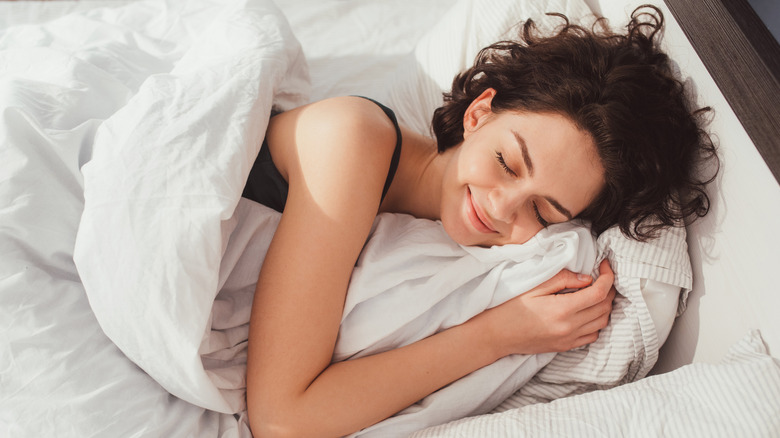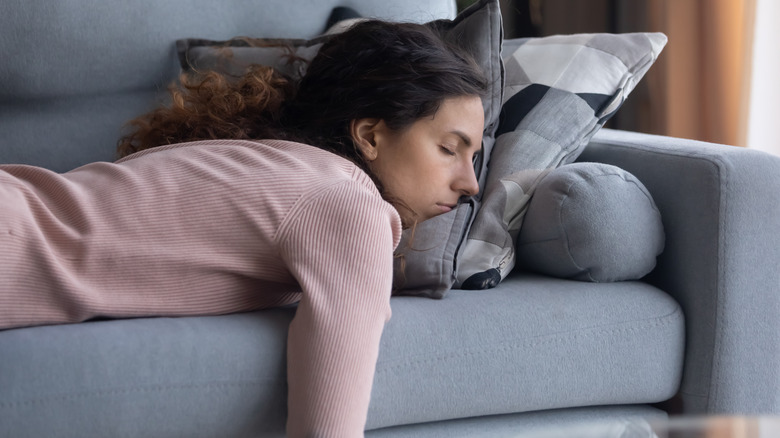What Is Monophasic Sleep?
Getting a good amount of sleep is incredibly important for both physical and mental health. If you don't get enough sleep, you'll be less alert and more fatigued and moody, which will interfere with your work and relationships. Your memory will be impaired, you will be less likely to exercise, and you'll be more likely to get into accidents. In fact, lack of sleep leads to thousands of car crashes every year. Consistent sleep deprivation puts you at a higher risk of diabetes, hypertension, stroke, obesity, and mental illness, as well as immunity and heart problems (per Cleveland Clinic).
In our quest to combat sleep deprivation, most of us turn to monophasic sleep patterns, which aren't nearly as complicated as they sound. Monophasic sleep simply means that you attain all of your sleep in a single block of time. Ideally, a person will go to sleep and wake up seven or eight hours later, says The Sleep Foundation.
How does monophasic sleep compare to biphasic and polyphasic sleep?
Biphasic sleep patterns involve two sleep sessions per day. Some people have both sleep sessions at night, and others have one session at night and a shorter one during the day. They should still have at least seven hours of sleep altogether. Some research suggests this may be the natural sleep schedule for humans, so if you ever find yourself waking up in the middle of the night, that may be why (per Sleep Foundation).
People with polyphasic sleep habits have short sleep sessions scattered throughout the day, often resulting in only 2-4 hours of sleep altogether. Research (via Sleep Health) suggests polyphasic sleep has a number of adverse effects on health and performance.
Monophasic or biphasic sleep patterns are ideal for most people, but if your schedule doesn't have room for more than a few hours of sleep at a time, then taking a couple naps during the day will be better than just getting one short session of sleep at night. Regardless of sleep pattern, you should strive for at least seven hours of sleep each day, according to the CDC.


